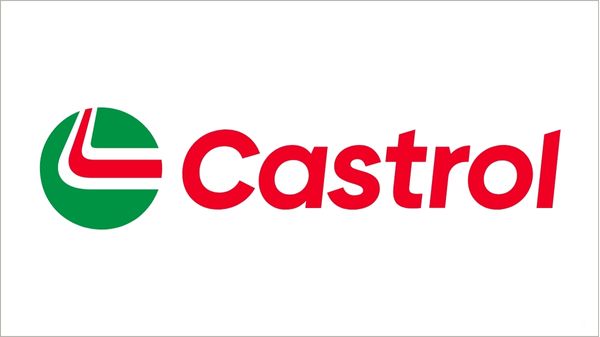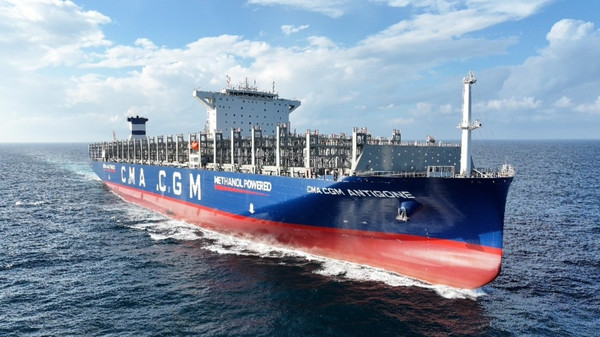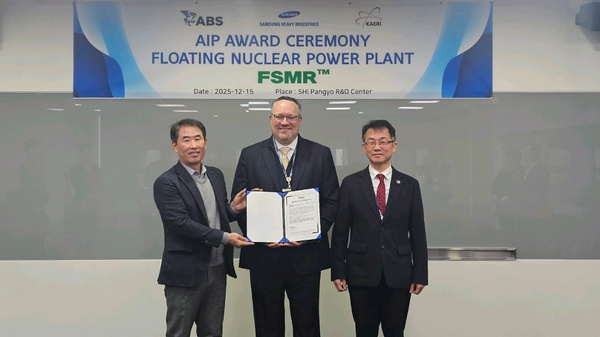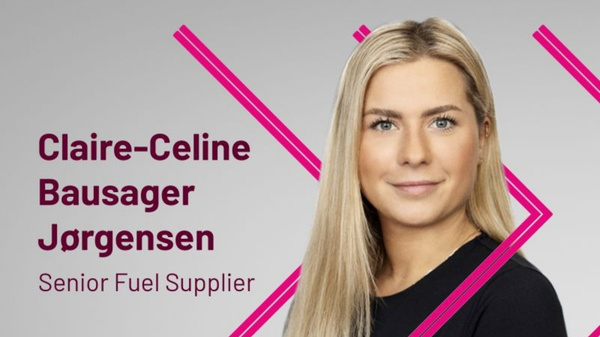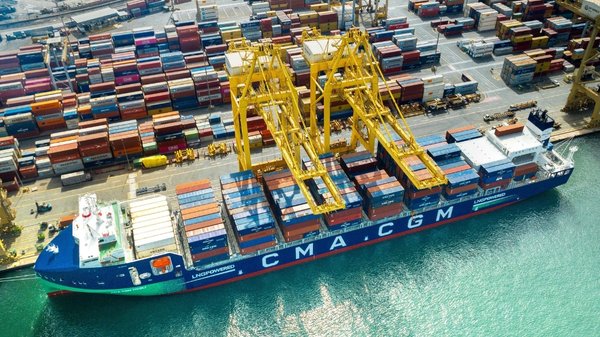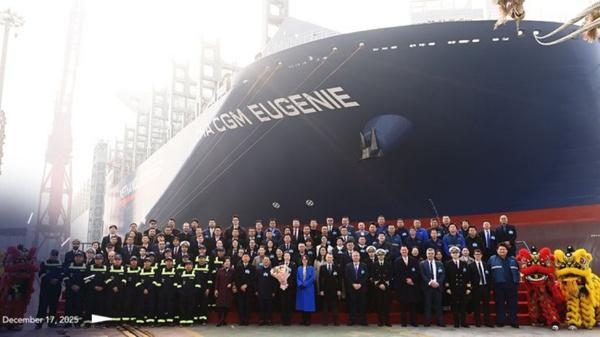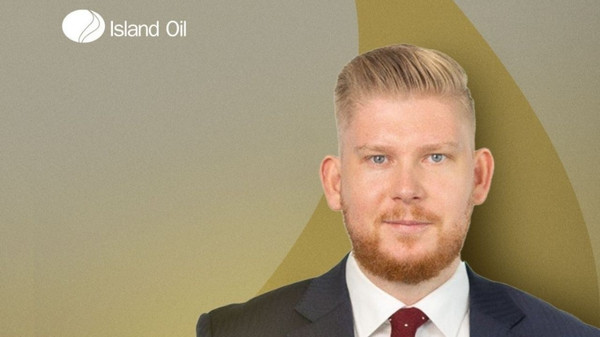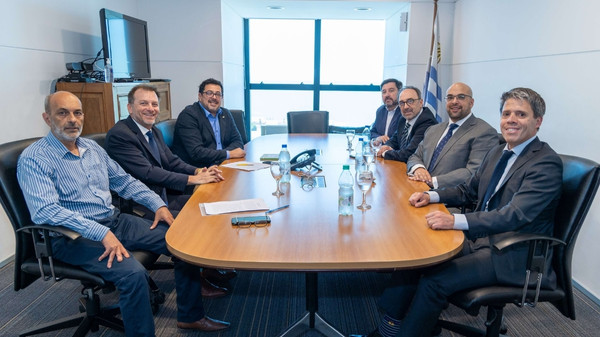For the second year in a row, the port of
Seattle presented its
Green Gateway Partners Awards, which recognize the comprehensive environmental achievements of the port’s cruise and containership operators.
This year’s award winners are APL Ltd., Hapag-Lloyd, Maersk Line, Matson Navigation, COSCO Container Lines America’s Inc., Royal Caribbean International, Celebrity Cruise Lines, Norwegian Cruise Line, and Holland America Line.
"These maritime operators demonstrate by their actions every day that you can be good environmental stewards while contributing to our economy," said
Tay Yoshitani, CEO of the Port of Seattle. "We look forward to honoring more of our customers in the future."
The name of the awards – Green Gateway Partners – compliments the Port of Seattle’s role as the Green Gateway for maritime trade between Asia and the American Heartland. A study released in 2009 showed that for cargo originating in much of Asia and bound for a wide range of destinations across the United States, routes through Seattle resulted in lower carbon emissions than other routes.
The Green Gateway Partners Awards set as a minimum requirement participation in the Port’s At-Berth Clean Fuels program (ABC Fuels) or use of shore power. These and other environmental activities are assigned point values. Depending on the number of points earned, Green Gateway Partners can achieve one of three recognition levels – gold, silver or bronze. The awards and scoring system were carried out by a third party.
ABC Fuels
Vessels participating in ABC Fuels agree to use low sulphur fuel (0.5% or less) in their auxiliary engines while docked in Seattle. In exchange, the Puget Sound Clean Air Agency helps defray the cost of the more expensive low sulphur fuel by providing participating vessels with $2,250 for each port call.
2011 Green Gateway Award Winners
Gold Award
The APL application exhibited excellent environmental stewardship in many areas, a few of which are highlighted below:
* APL exhibits exceptional collaboration efforts to establish a greener supply chain. Collaboration activities included: regularly meeting with key customers, delivering papers at environmental conferences, attending environmental meetings, and participating in several environmental leadership positions including, Board of Directors, Committee Chair, and steering committee participation. Eleven bonus points were awarded in this category.
* APL is a leader in the Innovative Vessel Design category. The 32 new state of the art container ships being built have environmentally friendly designs that show great environmental stewardship, and the hazardous cargo spill pumping system on the APL Garnet shows proactive environmental protection. In addition, reducing fuel consumption by using automatic steering on all ships is a great way to reduce emissions. A total of 3.5 bonus points were awarded in this category.
* APL utilizes a seawater scrubber for the auxiliary engines of the APL England, an emission control technology where seawater is used to scrub the contaminants from the exhaust emissions. Expected pollutant reductions from the scrubber are 99% SOx, 10% NOx, 80% PM, and 80% VOC.
* APL showed a strong environmental commitment and a proactive approach, as detailed within the ISO 14001 scope, and confirmed in the audit report. In addition, excellent environmental training and transparency programs were exhibited, including the creation of an environmental group which presents a series of outreach seminars to employees, customers, and partners providing an overview of APL's environmental initiatives and Q&A.
Royal Caribbean International is recognized for the following accomplishments:
* Royal Caribbean International showed innovation in the Pilot/Test Programs category with the pioneering exhaust gas scrubbing technology installed and tested on Independence of the Seas. Removing the bulk of sulfur oxide from the emissions, and effectively removing oxides of nitrogen and carbon dioxide is commendable.
* Royal Caribbean International also scored well in the ISO 14001 program. An annual stewardship report is publicly available for viewing. As part of the ISO 14001 program, each ship's Captain and Senior Officers hold an interactive seminar where guests are provided information regarding the Save the Waves Program. All staff and crew are required to attend Save the Waves Training upon each returning contract. An updated Save the Waves Training module has just been launched. Additionally, Save the Waves information is provided to guests and crew through posters, door hangers, and other messaging in cabins, restrooms, and other public spaces on the ships. All environmental policy and procedures for the operation of the ships is incorporated in the internal Safety and Quality Management system. The ISO 14001 audit report demonstrated continued improvement. One bonus point was awarded in this category.
* Royal Caribbean International scored well in the Innovative Vessel Design category. Radiance-class ships have the ability to use cold Alaskan and Baltic seawater to chill water, instead of running air-conditioning compressors, saving approximately five metric tons of fuel per ship, per day, when operating in these waters. Additional innovative vessel design measures include improved hydrodynamics, propellers, and propulsion, for which you were awarded 3 bonus points.
Hapag-Lloyd exhibited exceptional stewardship in the areas described below:
* Hapag-Lloyd exhibits exceptional collaboration efforts in order to establish a greener supply chain. Hapag Lloyd recently launched an emission calculator allowing customers to measure the emissions created from shipping a container to and from various locations. Other collaboration activities included; working with customers on projects to reduce transport emissions, the selection of environmentally friendly terminals, and cold ironing negotiations with ports. Three bonus points were awarded in this category.
* Hapag-Lloyd implemented a Ship Energy Efficiency Management Plan and provided excellent participation in the Other Environment Protection Programs category. Hapag-Lloyd shows global environmental stewardship by participating in the following programs; Environmental Passport, Environmental Ship Index, Singapore Green Port, Hong Kong Fair Winds Charter, and the Clean Cargo Working Group. As a tool to reduce carbon emissions, Hapag-Lloyd has an internal reporting system in connection with applied weather technologies routing. Three bonus points were awarded in this category.
The following Innovative Pilot/Test Programs are in place and show pro-active environmental stewardship:
- Alternative fuels are currently being investigated by expert working groups.
- Fifteen vessels will be retrofitted with shore power and are negotiating with ports who offer cold ironing.
- All new-buildings will be equipped with International Maritime Organization approved blackwater treatment plants and the more efficient
Becker Rudder will be installed.
- The EcoCalc is an innovative way to allow customers to track their emissions while transporting goods.
- Hapag-Lloyd is a member of the Hercules-B project group seeking solutions for higher efficiency engines with ultra low emissions for ships.
Celebrity Cruises is recognized for the following:
* Celebrity Cruises also scored well in the ISO 14001 program. The 2010 Stewardship Report is available online for viewing. As part of the ISO 14001 program, each ship's Captain and Senior Officers hold an interactive seminar where guests are provided information regarding the Save the Waves Program which focuses on reducing waste created/generated, recycling, and proper disposal. All staff and crew are required to attend Save the Waves Training upon each returning contract. An updated Save the Waves Training module has just been launched. Additionally, Save the Waves information is provided to guests and crew through posters, door hangers, and other messaging in cabins, restrooms, and other public spaces on the ships. All environmental policy and procedures for the operation of the ships is incorporated in the internal Safety and Quality Management system. The ISO 14001 report demonstrated continued improvement. One bonus point was awarded in this category.
* Celebrity Cruises showed exceptional collaboration activities to further meet sustainability goals. An example of Celebrity Cruises’ efforts in environmental stewardship includes the development of a Green Rating System for shipboard chemicals to reduce environmental risk and encourage the use of greener products. Agreements made with suppliers to minimize wrapping and packaging also reduces waste created by Celebrity Cruises.
*Celebrity Cruises scored well in the Innovative Vessel Design category. The Celebrity Solstice-class ships have been designed from the hull up and more than 90 tests were conducted to continuously improve the hull design to reduce resistance and burn less fuel, resulting in fewer emissions. By using silicone paint and smoothing out welded areas on the hull, a smoother coating is created which is estimated to save as much as 5 percent of fuel usage. Additional vessel design measures include improved hydrodynamics, propellers, and propulsion which contributed to 3 bonus points in this category.
Norwegian Cruise Line exhibited excellent environmental stewardship in a number of areas:
* The Other Innovative Wastewater Program category received the highest number of bonus points based upon the level of effort expended for wastewater treatment. Activities include the following: vacuum-flush toilet systems, reduced flow showerheads and faucets, collecting, drying, and incinerating bio-residual solids that result from the advanced waste water treatment system (AWTS), collecting and re-using condensate from the air conditioning systems for re-use in the laundry, use of high efficiency laundry washing systems, a vacuum food pulper system, emulsion breaking oil water separators, a bilge water separator and two "white boxes" that contain certified oil content meters. Both ships have the ability to collect, dry and incinerate the bio-residual solids that result from the AWTS. In addition, the Pearl has the Scanship Total System - integrating solid, liquid, and incineration systems. Seven bonus points were awarded in this category.
* Norwegian Cruise Line provided excellent examples in the Innovative Vessel Design category. Both ships calling at the Port of Seattle utilize organotin-free self-polishing anti-fouling systems that reduce underway water friction. The Star is partially coated with the Intersleek 757 foul-release silicone based coating system. Both vessels have an Azipod propulsion feature in lieu of the traditional shaft, stern tube, oil-based sealing system, and propeller. In addition, forward facing propellers have a lesser affected hydrodynamic flow pattern into the propeller, saving 5% on fuel consumption, and an incorporated ducktail hull design that is an extension of the ship's stern, reducing power consumption. One bonus point was awarded in this category.
* Norwegian Cruise Line showed innovation in the Pilot/Test Programs category. Projects included the following:
Working jointly with Scanship to reduce ammonia levels in wastewater effluent using alternative bio-media in rebuilt bio-reactors, installation of an oxygen generator, air compressor, and distribution systems to accelerate the process of nitrification in the bio-reactor to convert ammonia to nitrate/nitrites.
* Norwegian is also testing a program to replace lighting with LED bulbs on some vessels and fuel-water emulsion systems have been tested on the Pearl with the goal of reducing fuel consumption and NOx emissions.
Even though some of these programs had mixed/inconclusive results, the effort put forth to test new systems demonstrates pro-active environmental stewardship, and 2.5 bonus points were awarded.
* Norwegian Cruise Line scored well in the ISO 14001 program and the ISO initiatives supplement the environmental procedures in the company’s Environmental Management System. Crew training and environmental awareness programs are extensive, including the innovative Officer Snook Program that educates young people about the impacts of marine pollution and how to prevent it. In addition, the ISO 14001 audit report demonstrated continued improvement. Three bonus points were awarded in this category.
Maersk Line exhibited excellent environmental stewardship in many areas, a few of which are highlighted below:
* Maersk performed exceptionally well in the Other Innovative Environmental Protection Programs category. Maersk was instrumental in the creation of the Green Ship of the Future program in 2007 and continues the program with 20 participants that work toward the development and assessment of new technology and processes that reduce ship emissions. Other environmental stewardship programs include the Quest Program which is expected to reduce CO2 emissions by 500,000 tons per year. Maersk is also an active member of the Clean Cargo Working Group since 2002, and forty Maersk vessels have received green passports. Four bonus points were awarded in this category.
* Maersk is proactive with activities presented in the Innovative Pilot/Test Programs category. Activities include:
- Pilot fuel switching program,
- Testing technologies such as mica-bubbles,
- New propulsion systems,
- Duel fuel engines,
- Methods to optimize trim,
- Ballast water treatment systems SOx Scrubbing Technology,
- Testing environmentally friendly fuels,
- Evaluating advanced wastewater treatment systems, and
- Researching the air pollution from ships when vessels shift to cleaner, low-sulfur fuels.
Maersk also did exceptionally well in the ISO 14001 category, receiving all available points. The transparency and availability of environmental information, implementation of staff and crew training, and environmental awareness programs were exceptional. The ISO 14001 Audit Report was provided and demonstrated continued improvement and zero non-conformities were reported in the last two years.
Silver Award
Holland America Line exhibited excellent environmental stewardship in the following areas:
* The Holland America Line showed great commitment to reduce air emissions in the Other Air Emission Reduction Systems category by installing: LED lighting, high frequency drives on selected motors, reflective film on windows, and optimizing routes, chillers and Azipod efficiency. The Seattle Fuel Saving Committee focused on implementing high value projects to support the fleet in fuel saving endeavours. The entire fleet was asked to reduce fuel consumption by 2%. As a result of the endeavour, in 2010 fuel efficiency was increased by 4.3% as business increased by 9.8% and fuel consumption decreased by 0.5%. Four bonus points were awarded in this category.
* Holland America Line showed collaboration to establish a greener supply chain. They worked with suppliers to minimize packaging, donated used cooking oil to biodiesel manufacturers, and donated many reusable items to charity through the ship to shelter program. These efforts reduced the amount of waste generated. In addition, ensuring that bunker fuel providers meet Washington State bunkering rules demonstrates environmental commitment. Once bonus point was awarded in this category.
* Holland America Line scored points in the Other Innovative Environmental Protection Programs category by establishing a new partnership with the Marine Conservation Institute and working to promote ocean conservation. In addition, implementing a fleet wide sustainable seafood program is an innovative approach to environmental stewardship. Two bonus points were awarded in this category.
Matson Navigation exhibited excellent environmental stewardship in a number of areas:
* The ISO 14001 certification included documentation and metrics in the form of targets and objectives on environmental performance. All employees also receive ISO 14001 orientation and awareness training consistent with the international standard. An audit report was included with the application and demonstrated Matson’s environmental commitment and continued improvement.
* Solid Waste Management aboard Matson ships is commendable. The Victory at Sea “Zero Discharge” Solid Waste Management Manual provides good guidance and practical exercises to manage solid waste. The zero discharge policy shows excellent environmental stewardship.
* Matson collaborates with customers and terminal operators to establish a greener supply chain. As a participant in the Clean Cargo Working Group, Matson is dedicated to integrating environmentally and socially responsible business principles into transportation management. Activities associated with this include:
- Working closely with marine terminal operator, SSA Terminals, to implement environmental initiatives ashore and on the vessels.
- Working closely with customers to ensure a greener supply chain by completing environmental questionnaires and providing data so that customers can calculate the carbon footprint of transporting their products.
* Matson has earned a State of Washington Promising Technology Waiver Approval to demonstrate an innovative ballast water treatment system on the Moku Pahu by partnering with Ecochlor, Inc. The system uses chlorine dioxide gas to disinfect ballast water as it enters the tanks.
Bronze Award
COSCO Container Lines America’s Inc exhibited good environmental stewardship in the following number of areas:
* COSCO has good collaborative efforts with the Port of Seattle and participates in many activities to collaborate with customers and terminal operators to establish a greener supply chain. Activities include reviewing the certificate of green for environment-friendly products at the inquiry stage and checking the necessary report or certificate for products stored onboard. COSCO became a member of the United Nation’s Global Compact and strictly follows its principles in the areas of development, human rights, labor, and the environment. COSCO has included measures of the Global Compact into corporate future strategy, linking the sustainable development mode to the future of COSCO. COSCO also invests heavily in environmental protection and product quality improvement every year.
* COSCO’s environmental stewardship is demonstrated by the following: having a well-designed hull form and a heavy investment in double-hull tankers to reduce the amount of oil leaked in the event of a collision or grounding. To decrease the resistance in water, a high quality self-polishing coating is applied. In addition, a rudder-propeller system is applied to improve thruster efficiency. To meet the SOx emission control regulation, a low sulfur fuel oil tank is onboard and a homogenizer is applied to improve the fuel oil quality before it enters into the main engine.

